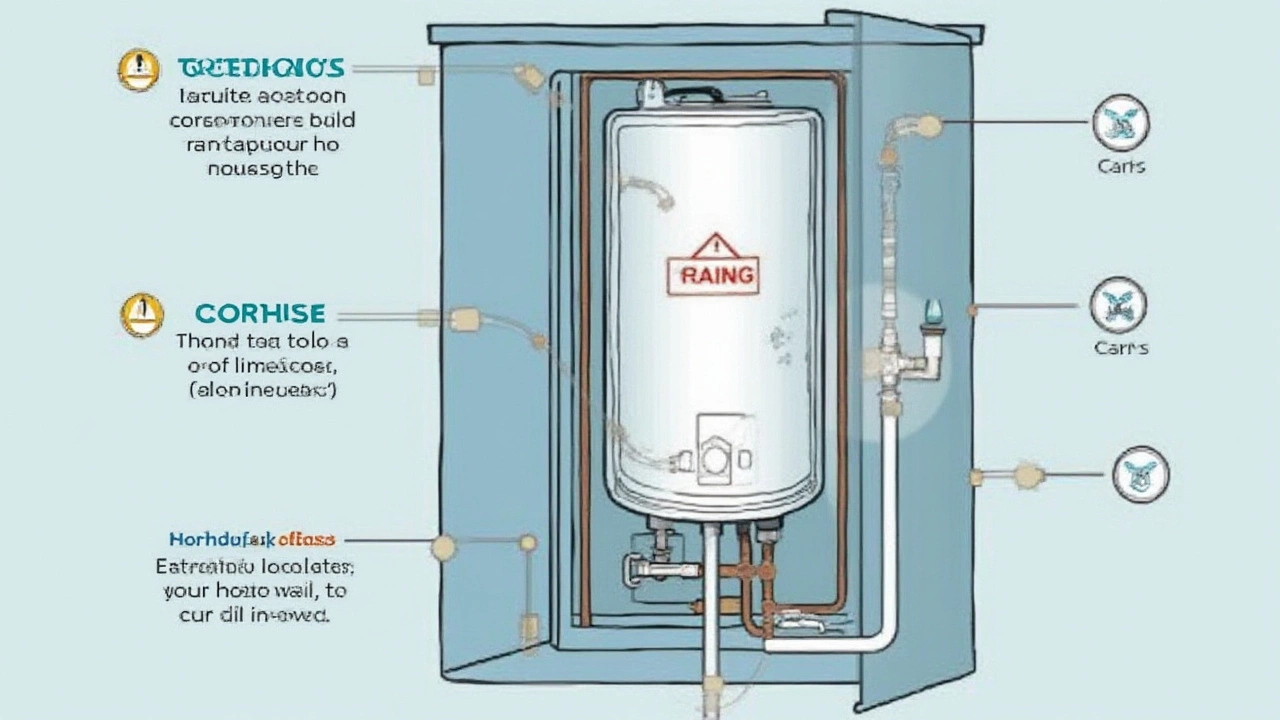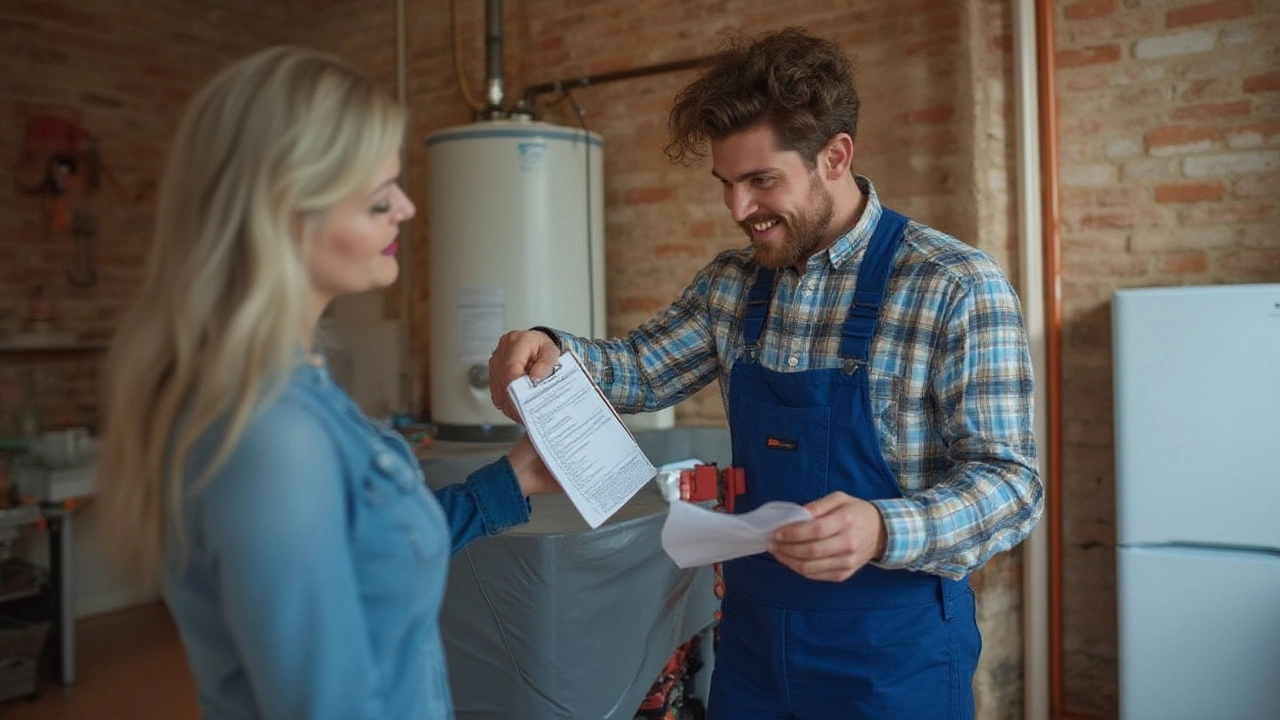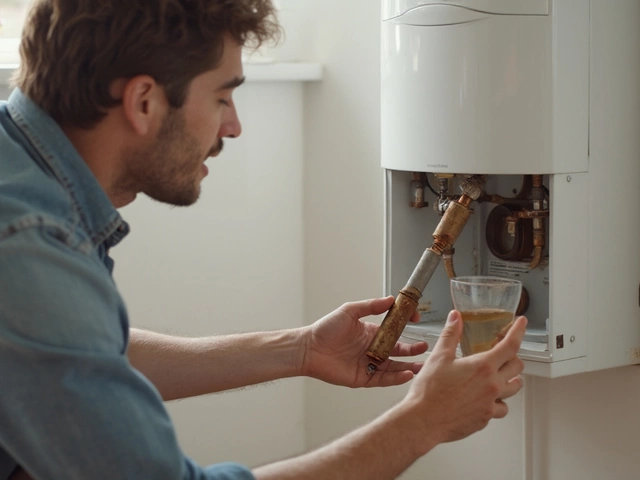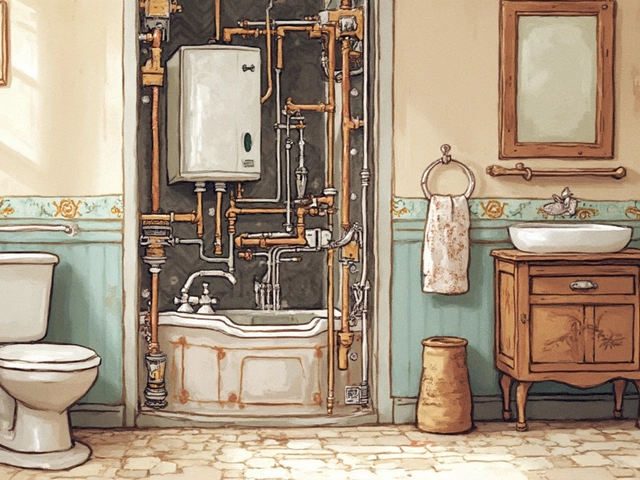Ever turned on the tap expecting a warm shower, only to be greeted by icy water or weird noises echoing from the airing cupboard? It’s easy to ignore your water heater—until something goes wrong. This silent workhorse keeps your mornings bearable and your dishes clean, but when it starts showing red flags, it pays to notice them early. Ignoring warning signs doesn’t just mean cold showers. A failing water heater can send your bills soaring, flood your home, even put you at risk for nasty injuries. So why do so many people miss the signals? Sometimes it’s just that the early symptoms seem harmless, like a little rumble or a short blast of brown water. Yet, these are often the whispers before a full-on emergency.
Strange Noises: More Than Just Old Pipes
If you’ve ever heard banging, popping, or rumbling coming from your water heater, you might be tempted to write it off as the plumbing settling. But here’s the thing—these sounds are not normal. They usually mean sediment has built up at the bottom of your tank. Each time the heater kicks on, water trapped beneath the sediment bubbles up and makes those ominous sounds. Not only does this make heating less efficient (translating to higher bills), it risks overheating, which shortens the life of your heater and can even damage other parts.
The science backs this up. A 2023 study by the UK Building Research Establishment found that sediment buildup is one of the most common causes of premature water heater failure in British homes. The same research showed that even a 2-centimeter layer of sediment could lower efficiency by 30%. Imagine tossing money into a cold bath—that’s what you’re doing when you ignore this problem. If the noise becomes louder or more frequent, you’re way past the point for a routine flush. Eventually, this can cause cracks and lead to leaks.
Have a combi boiler instead? Strange noises still matter. Limescale, airlocks, or failing pumps can make your system rattle and groan. Don’t get used to these sounds—get them checked pronto. Remember, every strange noise is your system’s SOS.
Discoloured Water: What Your Tap Is Telling You
If clean clothes suddenly come out the wash tinged with a rusty hue, or your bathwater looks like it belongs in a dystopian film, something’s off. Rusty or brown water coming from the hot tap usually means corrosion inside your water heater tank. This happens when the anode rod— a part designed to attract rust and protect your tank—has worn out and isn’t replaced in time. Once corrosion sets inside the tank itself, it can’t be undone. It’s only a matter of time before leaks appear.
The Environmental Agency in England notes that rusty water almost never poses a health risk, but it does signal trouble for your appliances. Appliances and pipes exposed to rusty water are more likely to break down sooner. That’s not the only concern. Regularly seeing sediment or rusty bits means your tank is literally crumbling from the inside. While it might take a while for a hole to appear, once it does, a full tank of hot water can splash out fast, ruining floors, furniture, and anything else nearby.
But what if the discolouration clears after running the tap for a minute? That might mean corrosion in your home’s old pipes—not necessarily your heater. To check, compare cold and hot water from several taps. If only the hot is affected, your water heater is the likely culprit.

Water Leaks: The Drip That Could Become a Flood
Spotting a puddle around your water heater is like seeing smoke in your kitchen—ignore it at your peril! Even a small dribble points to a potentially huge problem. Sometimes leaks come from connections or valves, which are usually fixable. But if you notice water seeping from the tank itself, you’re looking at irreversible damage—corrosion has likely eaten right through.
According to Which? Magazine in 2024, water heater leaks are one of the top five causes of household water damage claims in the UK, costing an average of £2,800 per incident. Ouch. Imagine that bill just for ignoring something you saw coming a mile away. Besides the cost, a leaking heater can encourage mould, damage the structure of your home, and waste hundreds of litres of water each week. Not great for your wallet or the climate.
It gets worse if you rely on a vented cylinder up in your loft. A hidden leak can soak ceilings and walls before you even notice. Regularly check around the base of your heater and along connecting pipes. If you feel any moisture or see signs of white limescale, call in a pro. Leaks don’t wait—they only get worse.
Temperature Trouble: Ice-Cold or Scalding Hot?
If your heater seems to operate on its own mysterious rules, swinging between frosty and volcanic, don’t just put up with it. Inconsistent temperatures usually hint at a faulty thermostat or, in older tanks, a failing heating element. There’s a bigger safety angle here, though. Water that’s too hot can cause burns in just a second—especially risky if you have elderly or young folks at home.
Other signs of trouble include having to turn the dial higher and higher just to get lukewarm water or noticing hot water that runs out much sooner than usual. These often mean sediment is insulating the element or your tank isn’t the right size for your household. Faulty mixing valves or timers can confuse the system, leading to energy waste and higher bills. According to a 2022 report by the Association of Plumbing & Heating Contractors (APHC), over 45% of hot water complaints in UK households relate to incorrect temperatures, usually due to thermostats ignored during routine inspections.
Don’t underestimate the risk. The NHS reports hundreds of scalding injuries every year, often caused by erratic boilers. Quick checks for temperature issues—like running your hand under the water, never jumping straight in—can prevent disaster.

Unusual Smells, Ageing Units, and Smart Checks
If hot water from your tap smells of rotten eggs, don’t blame your housemates. That “eggy” smell usually means bacteria are thriving in your tank, often where water’s sat stagnant or the temperature is set too low. Certain bacteria react with the anode rod and release sulfur, which is where the stink comes from. While not instantly dangerous, it’s downright unpleasant. The fix might be as simple as adjusting the temperature, or in some cases, properly cleaning or replacing the anode rod.
Let’s talk about age. Most traditional tanks last 8–12 years if well maintained. Past 10, risk of failure grows fast. (Check the serial on the manufacturer’s label to estimate its age if you’re unsure.) Combi boilers and tankless models often last longer but also need regular service—don’t be lulled into a false sense of security. Energy.gov in 2023 noted that old, inefficient heaters often waste up to 20% more power, even before they break down.
For a quick reference, here’s a handy table of water heater red flags and what they usually mean:
| Red Flag | Probable Cause | What to Do |
|---|---|---|
| Strange Noises | Sediment buildup, limescale | Flush tank, call engineer if persists |
| Rusty Water | Corroded tank or pipes | Check hot vs. cold taps, replace tank if needed |
| Leaks/Puddles | Corrosion, failed valves | Shut off water/power, call a professional |
| Temperature Fluctuations | Faulty thermostat, element damage | Service/replace thermostat/element |
| Unusual Smells | Bacterial growth | Increase temp, clean tank, check anode |
And here’s a checklist to keep your heater in top form:
- Flush your tank each year to remove sediment (or book a service).
- Replace the anode rod every 3–5 years.
- Check for leaks, rust, weird smells monthly.
- Test the pressure relief valve twice a year.
- Get a professional checkup every 12–18 months for gas or combi boilers.
Don’t forget: new smart home water heaters come with sensors for leaks, blockages, and even energy use. Some even send push notifications to your phone if something’s off. If your system’s old and repairs pile up, an upgrade might actually save cash in the long run. Yes, that high upfront cost stings, but it can be offset by the drop in power bills and repair callouts.
Ignoring water heater red flags isn’t just about taking cold showers. It’s about protecting your home, your wallet and your safety. The sooner you notice and act, the fewer surprises you’ll find lurking in your airing cupboard.




